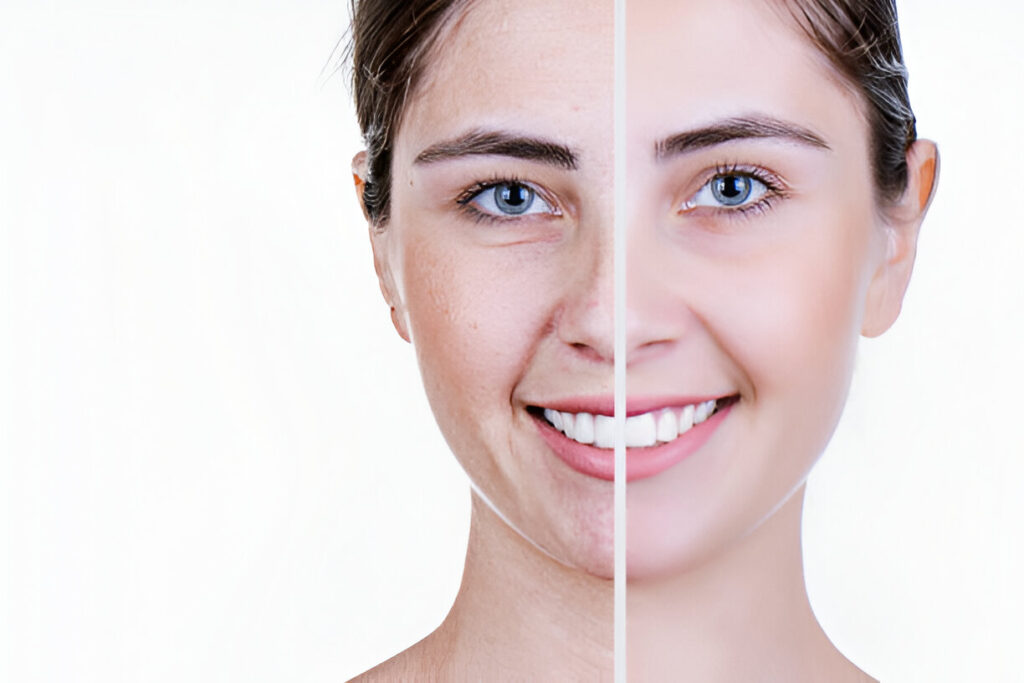Good oral hygiene is about more than just brushing and flossing. Your body needs the right vitamins and minerals to keep your teeth and gums healthy. Without these nutrients, your teeth may become weak, your gums may bleed, and your mouth may feel sore or dry. Eating a balanced diet helps your body stay strong and your mouth stay clean. In this article, you’ll learn about the most important vitamins for your teeth and where to find them. When you eat the right foods every day, your smile stays strong, bright, and free from damage or pain.
Calcium – The Foundation of Strong Teeth
Calcium is the most important mineral for your teeth. It helps form and protect the enamel, which is the hard outer layer of your teeth. It also keeps the bones in your jaw strong, helping your teeth stay in place. Without enough calcium, your teeth can become weak and more likely to get cavities or break. To get more calcium, try milk, cheese, and yoghurt. If you don’t eat dairy, you can have kale, broccoli, almonds, or fortified plant milk. Try to eat calcium-rich foods every day to keep your enamel strong and your jawbone healthy.
How Much Is Teeth Whitening for All Teeth?
Vitamin D – Helping Your Body Use Calcium
Even if you eat plenty of calcium, your body can’t use it properly without enough vitamin D. This essential vitamin helps your body absorb calcium and deliver it to your teeth and bones, where it’s most needed. Vitamin D also supports your immune system and protects your mouth from infection. Without it, you may experience weak teeth or gum problems. For those considering teeth whitening in Dubai, having healthy teeth is essential before any cosmetic treatment. You can get vitamin D from sunlight, oily fish, eggs, or fortified foods. Just 10–15 minutes in the sun can make a big difference.
Vitamin C – Keeping Gums Healthy and Strong
Vitamin C is vital for healthy gums. It helps your body build collagen, which keeps your gum tissue firm and strong. If you don’t get enough vitamin C, your gums may bleed or become swollen and sore. It also helps your body heal from cuts and protects your mouth from infections. You can find vitamin C in oranges, strawberries, kiwi, bell peppers, and leafy greens like spinach. Adding these to your meals helps keep your gums in top shape. Try to eat at least one fruit or vegetable high in vitamin C every day to support gum health.
Does Removing Wisdom Teeth Change Face Shape?
Vitamin A – For a Moist, Healthy Mouth
Vitamin A helps your mouth stay moist by keeping saliva flowing. Saliva is important because it washes away food and bacteria. It also helps protect your enamel from acid. Vitamin A also keeps the soft tissues in your mouth healthy and helps you heal quickly if you get a sore or cut. Foods rich in vitamin A include sweet potatoes, carrots, spinach, kale, liver, and egg yolks. Orange-coloured fruits and vegetables contain beta-carotene, which your body turns into vitamin A. Try adding colourful vegetables to your meals to boost your intake and support your mouth’s defences.
Vitamin K – Strengthening Teeth and Aiding Healing
Vitamin K supports strong bones and teeth. It works with calcium and vitamin D to help build tooth enamel and keep your jawbone strong. It also plays a role in blood clotting, which helps your body heal quickly after dental treatments or injuries in the mouth. A deficiency in vitamin K may increase the risk of tooth loss or bleeding gums. Good sources of vitamin K include leafy greens like spinach, kale, and Brussels sprouts, as well as broccoli and parsley. Try eating a few servings of green vegetables each week to support your mouth and overall health.
How Long Does Teeth Whitening Last?
B Vitamins – Supporting Gums and Tissues
B vitamins play a key role in keeping your gums and the soft tissues in your mouth healthy. They help reduce inflammation, prevent mouth sores, and improve circulation. Vitamins like B2, B3, B6, and B12 are especially helpful in preventing oral problems like bleeding gums, burning mouth, or dry lips. You can get B vitamins from foods like whole grains, eggs, dairy, fish, meat, and leafy greens. If you follow a plant-based diet, look for fortified foods or supplements to help fill any gaps. Getting enough B vitamins can help prevent gum disease and oral infections.
Phosphorus, Magnesium, and Fluoride – The Extra Supporters
Phosphorus helps calcium build strong enamel. It also protects teeth by rebuilding any damage caused by wear and tear. Magnesium supports healthy enamel and reduces inflammation, especially in the gums. Fluoride, while not a vitamin, is essential for strengthening enamel and preventing decay. These nutrients work together to keep your teeth hard and your gums strong. Phosphorus is found in meat, fish, eggs, and seeds. Magnesium comes from nuts, whole grains, and green vegetables. Fluoride is found in tap water, toothpaste, and some mouth rinses. Together, they form a strong defence for your teeth and gums.
Can yellow teeth become white again?
Final Thoughts – Your Daily Nutrition Shapes Your Smile
Eating the right vitamins and minerals helps keep your teeth and gums strong, clean, and healthy. Calcium, vitamin D, vitamin C, and others all work together to protect your mouth from decay and infection. While brushing and flossing are still important, good nutrition builds your smile from the inside. If you’re unsure whether your diet is giving you what you need, speak with a dentist or healthcare provider. They can guide you on how to improve your diet or suggest safe supplements. Take small steps every day, and you’ll notice a big difference in your oral health.
Protect Your Smile with Expert Care at YAH Polyclinic
Looking to improve your oral health through the right nutrition and expert advice? At YAH Polyclinic, our dental team is here to support your smile from the inside out. Whether you have concerns about vitamin deficiencies, gum problems, or just want a full dental health check-up, we’re ready to help. We offer personalised guidance, preventative care, and advanced dental treatments to suit your needs. Book your consultation today and take the first step towards stronger teeth, healthier gums, and a confident smile that lasts. Your dental health starts with YAH Polyclinic — where your care comes first.
Frequently Asked Question
Can vitamin deficiencies affect my teeth and gums?
Yes, lacking certain vitamins like vitamin C or calcium can lead to issues such as bleeding gums, weak enamel, or slow healing. Eating a balanced diet rich in essential nutrients helps protect your teeth and gums from long-term problems like decay or gum disease.
Is it better to get vitamins from food or supplements?
It’s usually best to get vitamins through food, as your body absorbs them more effectively from natural sources. However, if your diet is restricted or you’re deficient, supplements can help. Always speak to a healthcare professional before starting any new supplement routine.
How does fluoride help with dental health?
Fluoride helps make enamel stronger and more resistant to acid attacks from plaque and sugar. It can also reverse early tooth decay. You’ll often find it in toothpaste and some drinking water supplies. It’s not a vitamin, but it’s still vital for strong teeth.
What foods help strengthen my enamel naturally?
Foods rich in calcium, phosphorus, and magnesium help rebuild and protect your enamel. These include cheese, leafy greens, almonds, seeds, and oily fish. Avoiding sugary snacks and acidic drinks also helps prevent enamel erosion and tooth decay over time.
Do children need different vitamins for their teeth?
Children need the same essential vitamins as adults, especially calcium and vitamin D for growing teeth and bones. However, they may need different amounts based on age. A varied, balanced diet and regular dental check-ups help ensure they’re getting what they need for healthy development.





